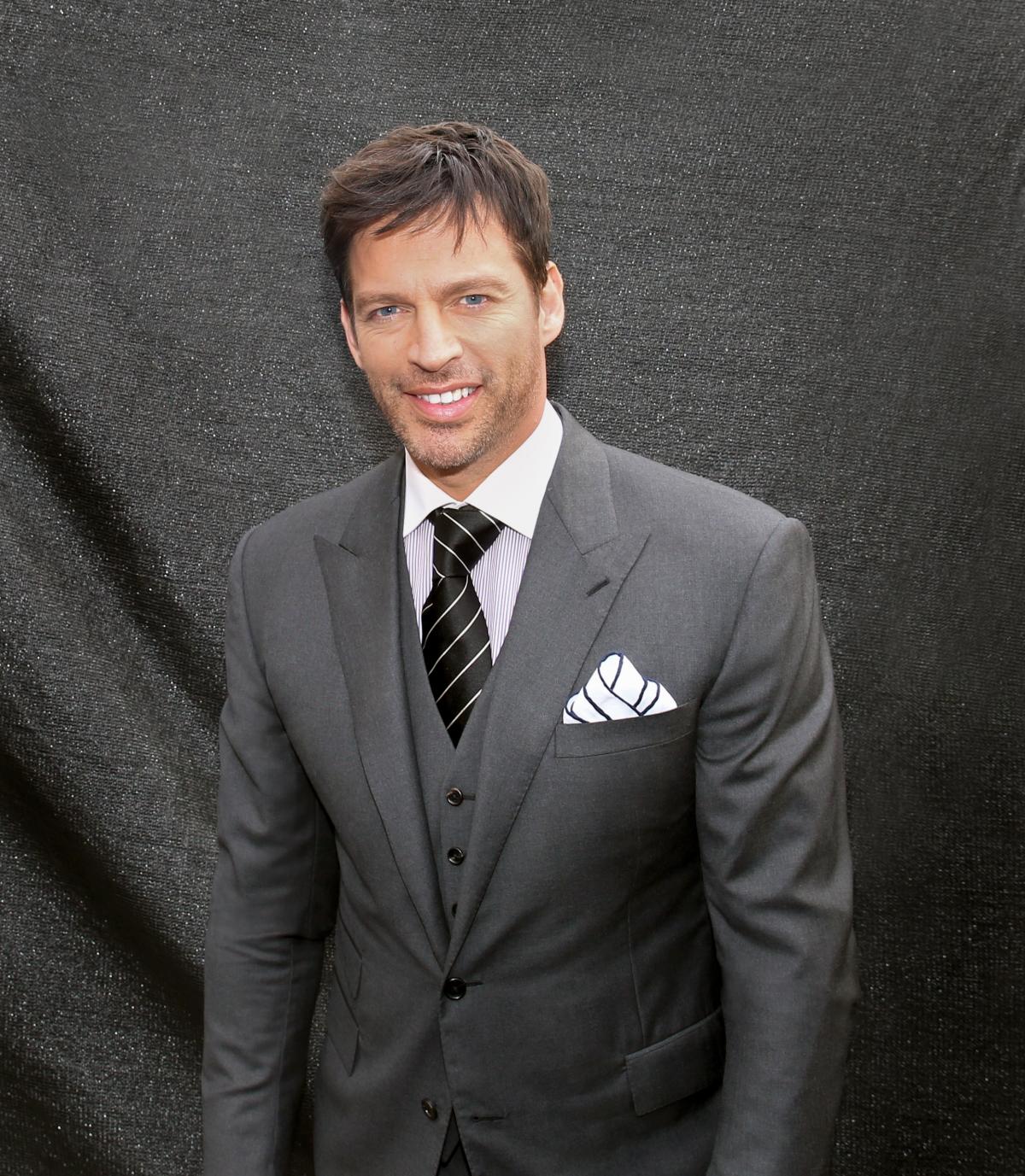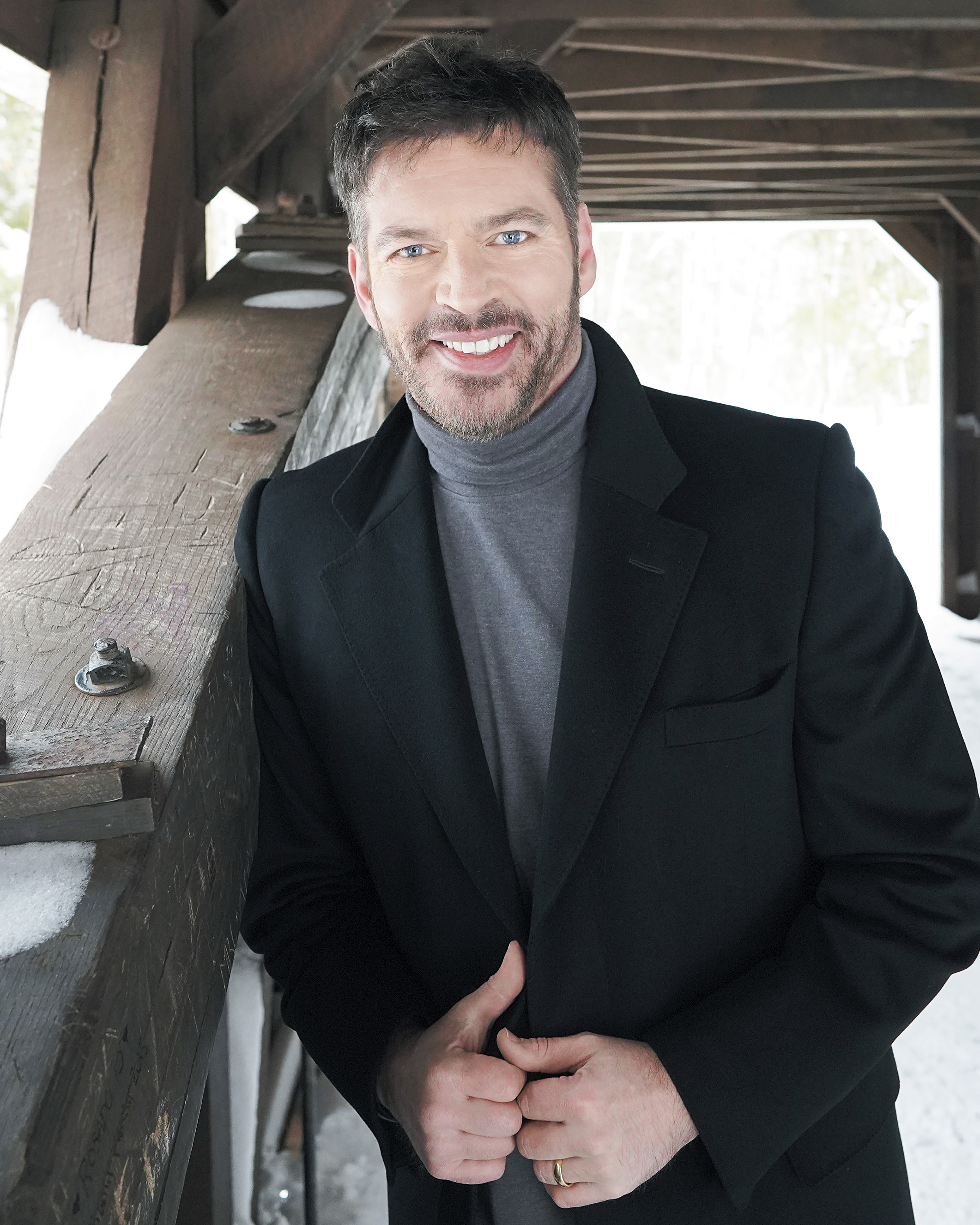Harry Connick Jr., the multi-talented musician, actor, and television host, has long been admired for his charisma and artistry. However, in recent years, his health has become a topic of interest, particularly following reports of a stroke. This article delves into the details surrounding Harry Connick Jr.'s stroke, exploring its causes, effects, and his inspiring recovery journey. As a public figure, Connick's experience sheds light on the importance of stroke awareness and proactive health management. This article aims to provide valuable insights into strokes, their impact, and how individuals can take steps to prevent them.
Strokes are a serious medical condition that can affect anyone, regardless of age or background. For celebrities like Harry Connick Jr., a stroke can be a life-altering event that not only impacts their personal lives but also resonates with fans worldwide. Understanding the causes and symptoms of strokes, as well as the recovery process, is crucial for anyone seeking to protect themselves and their loved ones from this potentially devastating condition. This article will explore the topic in depth, offering expert advice and trustworthy information.
By the end of this article, readers will have a comprehensive understanding of Harry Connick Jr.'s stroke, the broader implications of strokes, and actionable steps to safeguard their health. Whether you're a fan of Connick's work or simply seeking reliable health information, this article is designed to inform, inspire, and empower you.
Read also:Son385 The Ultimate Guide To Understanding And Mastering This Revolutionary Technology
Table of Contents
- Biography of Harry Connick Jr.
- Understanding Strokes: Causes and Symptoms
- Harry Connick Jr.'s Stroke: What Happened?
- The Road to Recovery: Insights from Experts
- Preventing Strokes: Practical Tips for a Healthier Life
- The Role of Support Systems in Stroke Recovery
- Long-Term Effects of Strokes and How to Manage Them
- Inspirational Stories: Overcoming Stroke Challenges
- Medical Advancements in Stroke Treatment
- Conclusion: Taking Action for a Stroke-Free Future
Biography of Harry Connick Jr.
Harry Connick Jr. was born on September 11, 1967, in New Orleans, Louisiana. From a young age, he displayed an extraordinary talent for music, learning to play the piano at just three years old. His career took off in the 1980s, and he quickly became a household name, known for his smooth voice, impeccable piano skills, and charismatic stage presence. Over the years, Connick has released numerous albums, acted in films and television shows, and served as a host for popular TV programs like "Harry."
Below is a table summarizing Harry Connick Jr.'s personal information and career highlights:
| Full Name | Joseph Harry Fowler Connick Jr. |
|---|---|
| Date of Birth | September 11, 1967 |
| Place of Birth | New Orleans, Louisiana, USA |
| Occupation | Singer, Actor, Television Host |
| Notable Works | Albums: "When Harry Met Sally...," "Come By Me" TV Shows: "Will & Grace," "American Idol" Films: "Hope Floats," "PS, I Love You" |
| Awards | Multiple Grammy Awards, Emmy Awards, and Tony Award nominations |
Despite his fame, Connick has always maintained a down-to-earth personality, often using his platform to advocate for important causes. His openness about his stroke experience has further solidified his role as a public figure who inspires others through both his art and resilience.
Understanding Strokes: Causes and Symptoms
A stroke occurs when the blood supply to part of the brain is interrupted or reduced, preventing brain tissue from getting oxygen and nutrients. This can lead to brain cell damage or death within minutes. There are two main types of strokes: ischemic strokes, which are caused by blood clots, and hemorrhagic strokes, which result from bleeding in the brain. According to the American Stroke Association, strokes are the fifth leading cause of death in the United States, with nearly 800,000 people experiencing a stroke each year.
Common symptoms of a stroke include sudden numbness or weakness, especially on one side of the body, confusion, difficulty speaking or understanding speech, trouble seeing in one or both eyes, dizziness, loss of balance, and severe headaches. Recognizing these symptoms early and seeking immediate medical attention is critical for minimizing damage and improving recovery outcomes.
Several risk factors contribute to the likelihood of experiencing a stroke, including high blood pressure, smoking, diabetes, high cholesterol, obesity, and a sedentary lifestyle. Family history and age also play a role, though strokes can occur at any age. Understanding these factors can help individuals take proactive steps to reduce their risk.
Read also:Pi K Heart Movies Exploring The Charm Of Cinematic Love Stories
Why Early Detection Matters
Early detection of a stroke can significantly improve survival rates and recovery outcomes. The acronym FAST (Face drooping, Arm weakness, Speech difficulty, Time to call emergency services) is a widely used tool to help people identify stroke symptoms quickly. Acting fast can save lives and prevent long-term disabilities.
Harry Connick Jr.'s Stroke: What Happened?
In 2021, Harry Connick Jr. revealed that he had suffered a stroke earlier in the year. While details about the incident were initially scarce, Connick later opened up about the experience in interviews and on social media. He described experiencing sudden weakness on one side of his body and difficulty speaking, classic symptoms of a stroke. Fortunately, he sought medical attention promptly, which played a crucial role in his recovery.
Connick's stroke was reportedly caused by a blood clot, making it an ischemic stroke. Doctors were able to administer treatment to dissolve the clot and restore blood flow to his brain. Following the incident, Connick underwent a rigorous rehabilitation process, which included physical therapy, speech therapy, and occupational therapy. His determination and positive attitude were instrumental in his recovery journey.
Sharing his story, Connick emphasized the importance of listening to one's body and seeking medical help immediately if something feels off. His openness about his experience has helped raise awareness about strokes and encouraged others to prioritize their health.
Lessons from Harry Connick Jr.'s Experience
Connick's story serves as a reminder that strokes can happen to anyone, regardless of age or fitness level. His proactive approach to seeking medical care and his commitment to rehabilitation highlight the importance of early intervention and perseverance in overcoming health challenges.
The Road to Recovery: Insights from Experts
Recovering from a stroke is a multifaceted process that often involves a combination of medical treatments, therapies, and lifestyle changes. Experts emphasize that recovery timelines can vary significantly depending on the severity of the stroke, the area of the brain affected, and the individual's overall health. For Harry Connick Jr., his recovery journey included several key components, each playing a vital role in restoring his physical and cognitive abilities.
Physical therapy is one of the most critical aspects of stroke recovery. It focuses on improving mobility, strength, and coordination. Patients typically work with physical therapists to perform exercises tailored to their specific needs. Speech therapy is another essential component, especially for individuals who experience difficulty speaking or understanding language after a stroke. Occupational therapy helps patients regain independence in daily activities, such as dressing, cooking, and using technology.
According to Dr. Emily Thompson, a neurologist specializing in stroke recovery, "The brain has a remarkable ability to rewire itself through a process called neuroplasticity. With consistent therapy and support, many stroke survivors can regain significant function." She also notes that mental health support, including counseling and support groups, is crucial for addressing the emotional and psychological challenges that often accompany stroke recovery.
Support Systems and Their Role
Having a strong support system is vital for stroke recovery. Family members, friends, and caregivers can provide encouragement, assistance, and emotional support during this challenging time. For Harry Connick Jr., his family played an integral role in his journey, offering unwavering support and motivation. Their involvement highlights the importance of community and connection in overcoming adversity.
Preventing Strokes: Practical Tips for a Healthier Life
While not all strokes can be prevented, adopting a healthy lifestyle can significantly reduce the risk. Experts recommend several strategies to minimize stroke risk, including maintaining a balanced diet, staying physically active, managing stress, and avoiding harmful habits such as smoking and excessive alcohol consumption.
A heart-healthy diet rich in fruits, vegetables, whole grains, lean proteins, and healthy fats can help lower blood pressure and cholesterol levels. Regular exercise, such as walking, swimming, or cycling, improves cardiovascular health and reduces the likelihood of developing conditions that increase stroke risk. Managing stress through techniques like meditation, yoga, or deep breathing exercises can also contribute to overall well-being.
Additionally, individuals should work closely with their healthcare providers to monitor and manage underlying health conditions, such as hypertension, diabetes, and high cholesterol. Regular check-ups and screenings can help identify potential issues early, allowing for timely interventions.
Key Takeaways for Stroke Prevention
- Adopt a balanced diet and exercise regularly.
- Manage stress and prioritize mental health.
- Avoid smoking and limit alcohol intake.
- Work with healthcare providers to monitor and manage chronic conditions.
The Role of Support Systems in Stroke Recovery
Recovering from a stroke is not a journey that should be undertaken alone. Support systems, including family, friends, healthcare professionals, and support groups, play a crucial role in helping stroke survivors regain their independence and rebuild their lives. For Harry Connick Jr., his support system was instrumental in his recovery, providing encouragement, practical assistance, and emotional comfort during a challenging time.
Family members often serve as primary caregivers, assisting with daily tasks and ensuring that the survivor adheres to their rehabilitation plan. Friends can offer companionship and motivation, helping to combat feelings of isolation or depression. Healthcare professionals, including doctors, therapists, and nurses, provide expert guidance and treatment, tailoring their approach to meet the unique needs of each individual.
Support groups, both in-person and online, offer a sense of community and shared understanding. Connecting with others who have experienced similar challenges can be incredibly empowering, providing valuable insights and encouragement. Many stroke survivors find comfort in knowing they are not alone and that others have successfully navigated the recovery process.
How to Build a Strong Support System
Building a strong support system involves reaching out to loved ones, joining support groups, and fostering open communication with healthcare providers. It's essential to be proactive in seeking help and expressing your needs. For caregivers, educating themselves about strokes and recovery can enhance their ability to provide effective support.
Long-Term Effects of Strokes and How to Manage Them
While many stroke survivors make significant progress in their recovery, some may experience long-term effects that require ongoing management. These effects can include physical disabilities, cognitive impairments, emotional challenges, and changes in communication abilities. Understanding these potential outcomes and developing strategies to address them is key to maintaining quality of life.
Physical disabilities, such as weakness or paralysis on one side of the body, may require continued physical therapy and the use of assistive devices like walkers or wheelchairs. Cognitive impairments, including memory loss or difficulty concentrating, can be managed through cognitive therapy and the use of organizational tools. Emotional challenges, such as depression or anxiety, may benefit from counseling or medication.
Changes in communication abilities, such as aphasia (difficulty speaking or understanding language), can be addressed through speech therapy and the use of alternative communication methods. Patience, persistence, and a positive mindset are essential for managing these long-term effects and achieving the best possible outcomes.
Strategies for Long-Term Management
- Continue therapy and rehabilitation as needed.
- Utilize assistive devices and tools to enhance independence.
- Seek professional help for emotional and cognitive challenges.
- Stay connected with support systems for encouragement and guidance.
Inspirational Stories: Overcoming Stroke Challenges
Harry Connick Jr. is not alone in his journey of overcoming

